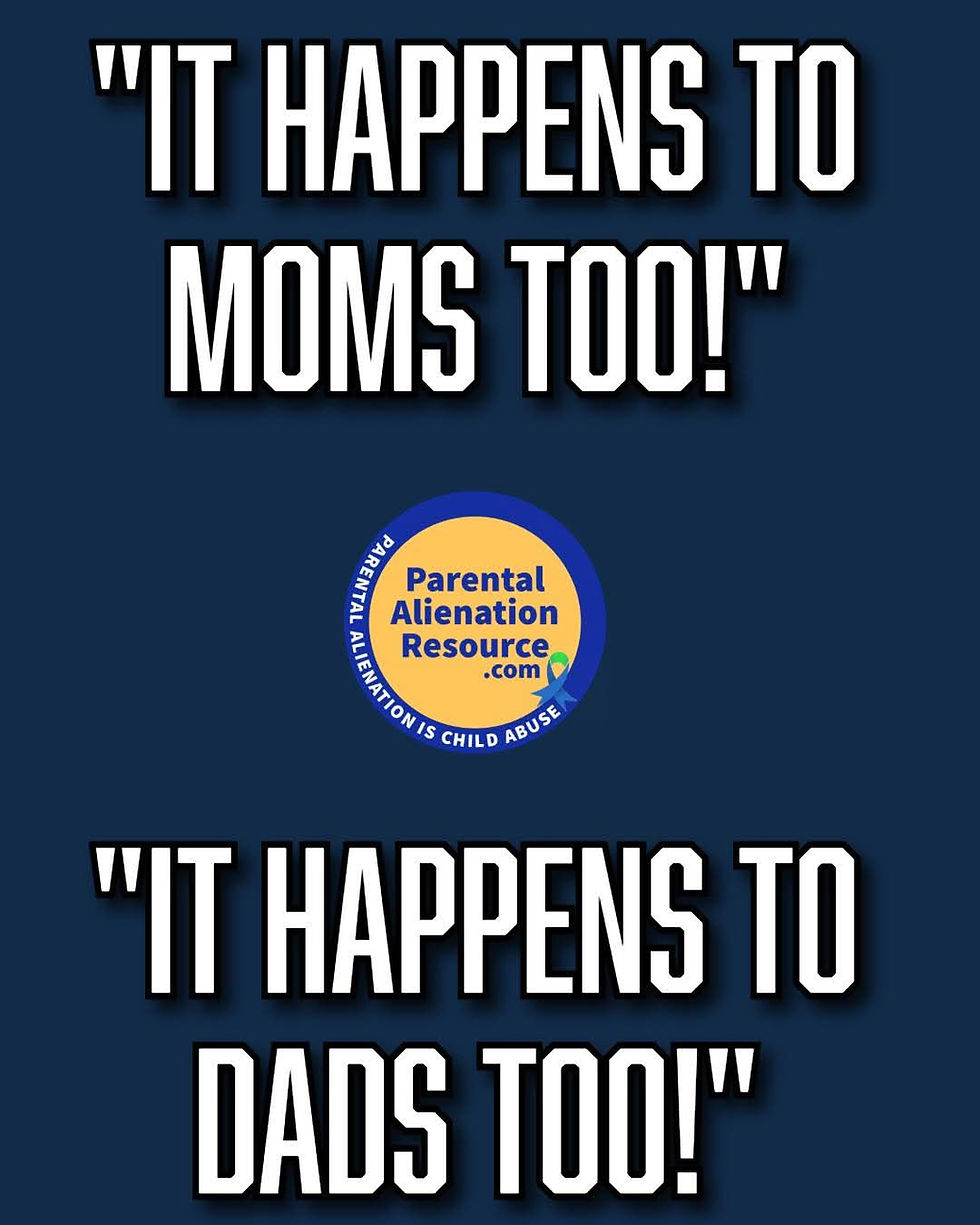What You Might Not Know About Parental Alieantion
- Parental Alienation Resource

- Aug 6, 2023
- 2 min read
Updated: Aug 17, 2023

Prevalence: Parental alienation is estimated to affect between 11% and 15% of all divorces involving children.
Gender bias: While both fathers and mothers can be victims of parental alienation, studies suggest that alienating behaviors by mothers are more common.
Long-term effects: Children who experience parental alienation are more likely to have long-term psychological and emotional difficulties, including depression, anxiety, and relationship problems.
False allegations: In cases of parental alienation, false allegations of abuse or neglect against the targeted parent are prevalent. Studies suggest that around 70% of allegations made during custody disputes are unfounded.
Impact on relationships: Parental alienation can have a lasting impact on the parent-child relationship. Research shows that alienated children are less likely to maintain a close relationship with the targeted parent as they grow older.
Legal outcomes: Parental alienation can influence custody decisions. Courts may be more likely to award sole custody to the alienating parent if they believe there is an ongoing effort to undermine the relationship between the child and the other parent.
High-conflict divorces: Parental alienation is more prevalent in high-conflict divorces. These divorces often involve ongoing disputes, communication breakdowns, and hostility between parents.
Coercive control: Parental alienation is sometimes associated with coercive control, a pattern of abusive behavior aimed at controlling the other parent. It is a form of domestic violence that uses power and manipulation to limit the targeted parent's involvement in the child's life.
Risk factors: Several factors increase the likelihood of parental alienation, including high parental conflict, a history of abuse or neglect, mental health issues, and lack of cooperation between parents.
International recognition: Parental alienation is increasingly recognized as a form of child abuse by various international organizations, including the World Health Organization (WHO) and the American Psychological Association (APA).









Comments